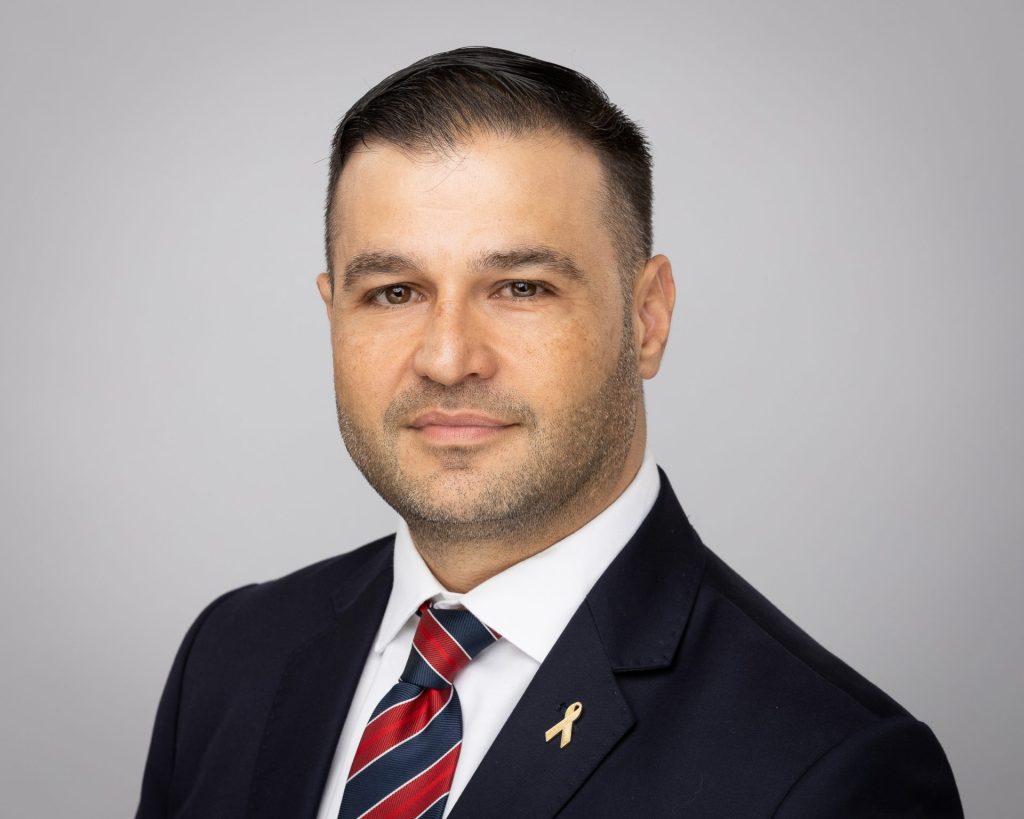Zurich: Parents in UAE should opt for higher education savings plans

Majority still use traditional savings methods
The global higher education savings market is valued at over $2.7 trillion, with significant growth driven by rising tuition costs and increasing demand for higher education. With the cost of higher education rising globally, more parents in the United Arab Emirates (UAE) are starting to focus on securing a financial future for their children’s education.
To discuss this important topic, we sat down with David Denton-Cardew, Head of Propositions, Zurich International Life Middle East, a key division of Zurich Insurance Group, to explore how parents in the UAE are saving for their children’s higher education and what role Zurich plays in this space.
Denton-Cardew and his team develop relevant, simple, and flexible propositions, always considering the customer journey across its entire lifecycle. To do this, they rely on deep customer insights and collaborate with a wide range of internal and external stakeholders to ensure their offerings are well thought out and impactful.
Excerpts from the exclusive interview:
How are parents in the UAE saving for their children’s higher education?
According to our survey, about 70% of UAE parents have already started saving for their children’s higher education. The majority, 77%, use traditional savings methods like bank accounts. This approach is understandable, given how easy it is to open an account and start saving, especially with interest rates in the UAE having been attractive in recent years.

However, while these accounts offer security, they do not account for inflation. As inflation rises, the purchasing power of the money saved today erodes, meaning that what you save today may not be enough to cover future higher education costs. While it is a start, more effective solutions like Zurich’s higher education savings plans are available for long-term goals like education.
What are the common characteristics of parents in the UAE who save for their children’s higher education costs?
The latest survey we conducted in February 2024 shed light on the characteristics of UAE-based parents prioritising saving for their children’s higher education. The typical parents who save for education are primarily expatriates, with a majority coming from the Indian subcontinent, followed by Western and Arabic expatriates.
These parents are between the ages of 25 and 45 and often have higher disposable incomes, particularly those earning above AED92,000 ($25,000) monthly. These are salaried executives or business owners who understand the importance of planning for the future.
Interestingly, despite being affluent, they are not necessarily ultra-wealthy and are cautious about long-term savings. This demonstrates their proactive approach to securing their children’s education, which empowers them to take control of their children’s future.
What are the main features of Zurich’s higher education plans?
At Zurich, we recognised a gap in traditional savings plans – many were parent-focused rather than child-focused. Most financial products that claim to save for education are in the parent’s name, which presents a risk. If something happens to the parents, the savings might not be available for the child’s education.

In contrast, we have designed our plans to ensure that the child is a direct party to the contract. This means that regardless of what happens to the parents, the policy remains in force, ensuring that the savings are protected for the child’s education.
We also provide a unique feature: if the parents cannot continue paying the premiums due to death or disability, Zurich guarantees continued savings for the child’s education, covering the premiums for the plan’s duration. This means that regardless of what happens to the parents, the policy remains in force, ensuring that the savings are protected for the child’s education.
What are the typical risks associated with higher education-focused savings plans?
The biggest risks parents face are inflation and the potential financial impact of unforeseen events, such as job loss, death, or disability. If parents rely on traditional savings or investment products that are not robust enough, they might be underfunded when it comes time for their child’s education.
Additionally, the savings might fall short if the child’s education costs increase due to unforeseen global or regional changes. At Zurich, we help mitigate these risks by designing products that factor in inflation and provide financial security if the parents can no longer contribute.
What general advice can you offer parents regarding higher education savings plans?
My advice is to start as early as possible. The earlier you begin, the more time your money has to grow. This early planning is a financial strategy and a proactive step towards securing your child’s future.
Consider a product specifically tailored for education savings, like Zurich’s. These plans should consider inflation and long-term growth, with protections for the child if something happens to the parents. Reviewing your financial situation periodically and adjusting your contributions accordingly is crucial, especially as your income or financial needs change.
What parameters does Zurich use to develop its higher education savings plans for UAE residents?
At Zurich, we focus on several key parameters: long-term financial security, child-centric planning, and risk mitigation. We create plans designed with inflation in mind, ensuring that the value of the savings grows over time to meet future education costs. This comprehensive approach is designed to reassure parents and instil confidence in their children’s future.
We also focus on flexibility, allowing parents to adjust contributions as needed. Lastly, we aim to provide peace of mind with features such as ensuring premium payments are covered in case of death or disability and ensuring that education savings are uninterrupted. This flexibility ensures that parents can adapt their plans to changing circumstances, providing a sense of security and adaptability.
Australia, Canada, and New Zealand are reducing foreign student intake. How does this scenario affect parents beginning to save for their children’s higher education in these countries?
The tightening of international student intakes in countries like Australia and Canada impacts long-term education planning. Parents planning to send their children to these destinations must know that education costs could rise if fewer spaces are available, and competition for places may increase.

In such cases, parents should have flexible education savings plans like Zurich’s, which can quickly adapt to changing circumstances, whether shifting destinations or adjusting funding amounts. Our plans allow parents to adjust contributions as needed, ensuring that their child’s education savings remain uninterrupted and can meet the changing needs of the future.
In what currency or bouquet of crypto should higher education savings plans be taken?
For most parents in the UAE, the ideal currency for education savings plans is US dollars, given the international nature of higher education costs. Most universities and academic institutions charge US dollars or currencies closely tied to the dollar.
As for crypto, while it is an exciting and fast-growing asset class, its volatility makes it unsuitable for long-term, goal-based savings like education. The risks of crypto outweigh the potential benefits for something as critical as a child’s education.
Most parents in the UAE are expatriates. Why should they choose a higher education savings plan from Zurich instead of well-established providers in their home country?
Many expatriate parents in the UAE have ties to multiple countries, and a savings plan that is globally recognised, flexible, and secure is essential.
Zurich offers a solution that is not only child-centric but also portable and adaptable across different countries. Unlike plans tied to a specific country, Zurich’s plans allow parents to adapt their contributions and use the funds for education anywhere in the world.
Additionally, our international presence and financial strength mean that we offer stability and security that local providers might not be able to provide, especially for expatriates who are more likely to move or have diverse needs.
Can you provide an overview of the higher education savings market in the UAE?
The higher education savings market in the UAE is substantial, given the large expatriate population deeply invested in securing a future for their children. Many parents in the UAE, especially those earning above-average salaries, prioritise saving for higher education abroad, particularly in countries like the US, UK, Australia, and Canada.
The market is growing, with increasing awareness of the importance of long-term savings for education and the need for solutions that offer protection against inflation and other risks.
However, there is still significant room for education-focused savings plans that are flexible, portable, and tailored to expatriates’ needs. With the average cost of education abroad rising yearly, the market’s total value can be estimated in billions of dollars, and there is an apparent demand for robust, secure, and globally accessible solutions.
Featured image: A Zurich survey found that about 70% of UAE parents have already started saving for their children’s higher education. Credit: Yaroslav Shuraev
Last Updated on 6 months by Arnold Pinto













